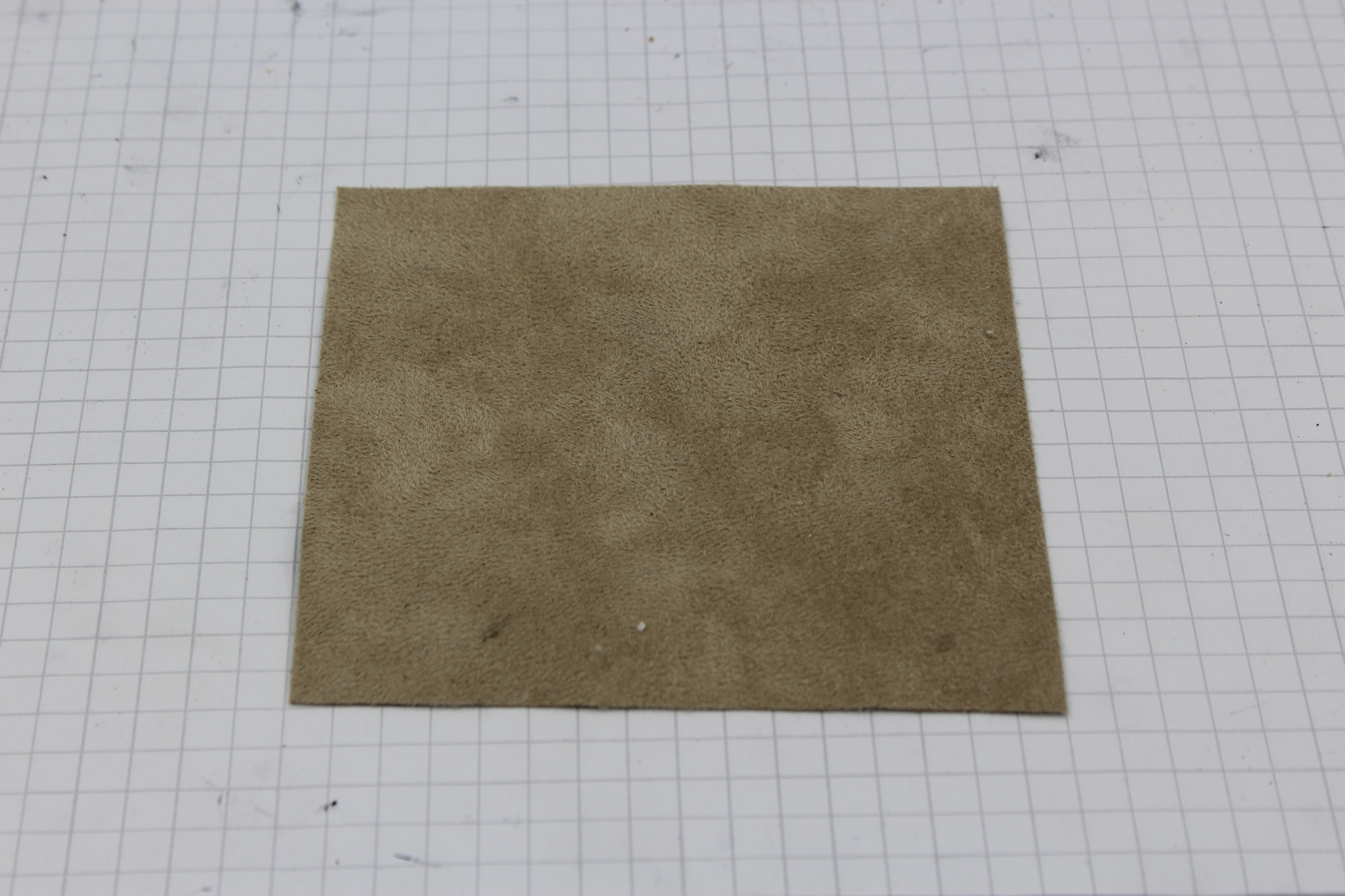Measured Data
Thermal Conductivity
Experiments for thermal conductivity [W/(m K)] were conducted using a heat flow meter on unconditioned and dried samples at 15 °C and either 45 °C or 65 °C.
Unconditioned
| Temperature (C) | Conductivity Mean (W/m-K) | Standard Deviation (W/m-K) |
|---|---|---|
| 30.0 | 0.037 | 0.001 |
| 40.0 | 0.040 | 0.000 |
| 50.0 | 0.042 | NaN |
Mass Loss Rate (MLR)
Initial-mass-normalized mass loss rate [1/s] was measured in the simultaneous thermal analyzer experiments at three heating rates: 3 K/min, 10 K/min, and 30 K/min and mass loss rate [g/s] in the cone calorimeter at three heat fluxes: 25 kW/m2, 50 kW/m2, and 75 kW/m2.
Cone Calorimeter Test Notes:
This material shrivels and melts under thermal exposure which reduces the exposed surface area during cone calorimeter tests. Prior to ignition, shrivelling of the sample caused contact with the spark ignitor, creating spikes in the mass time history data and likely affecting time to ignition. Additional replicates with alternative sample preparation (i.e. with frame, grid, and calcium silicate substrate; and using 5 layers of material per sample) may be necessary to supplement this data set.
Simultaneous Thermal Analyzer
Cone Calorimeter: 25 kW/m2
Cone Calorimeter: 50 kW/m2
Cone Calorimeter: 75 kW/m2
Heat Release Rate Per Unit Area (HRRPUA)
Experiments for heat release per unit area [kW/m2] were conducted on samples conditioned at 20°C and 50% relative humidity using a cone calorimeter at three different heat fluxes: 25 kW/m2, 50 kW/m2, and 75 kW/m2.
This material shrivels and melts under thermal exposure which reduces the exposed surface area during cone calorimeter tests. Prior to ignition, shrivelling of the sample caused contact with the spark ignitor, creating spikes in the mass time history data and likely affecting time to ignition. Additional replicates with alternative sample preparation (i.e. with frame, grid, and calcium silicate substrate; and using 5 layers of material per sample) may be necessary to supplement this data set.
Cone Calorimeter: 25 kW/m2
Cone Calorimeter: 50 kW/m2
Cone Calorimeter: 75 kW/m2
Carbon Monoxide (CO) Yield
Carbon monoxide yield was measured during cone calorimeter experiments conducted at heat fluxes of 25 kW/m2, 50 kW/m2, and 75 kW/m2.
This material shrivels and melts under thermal exposure which reduces the exposed surface area during cone calorimeter tests. Prior to ignition, shrivelling of the sample caused contact with the spark ignitor, creating spikes in the mass time history data and likely affecting time to ignition. Additional replicates with alternative sample preparation (i.e. with frame, grid, and calcium silicate substrate; and using 5 layers of material per sample) may be necessary to supplement this data set.
| Incident Heat Flux [kW/m²] | Mean CO Yield [g/g] | CO Yield Std. Dev. [g/g] |
|---|---|---|
| 25 | 0.022 | 0.006 |
| 50 | 0.018 | 0.002 |
| 75 | 0.018 | 0.006 |
Specific Heat Release Rate
Experiments for specific heat release rate [W/g], were conducted using a micro-scale combustion calorimeter at a heating rate of 30 K/min.
Derived Data
Soot Yield
Soot yield [g/g] was calculated from smoke obscuration data collected in cone calorimeter experiments conducted at heat fluxes of 25 kW/m2, 50 kW/m2, and 75 kW/m2.
This material shrivels and melts under thermal exposure which reduces the exposed surface area during cone calorimeter tests. Prior to ignition, shrivelling of the sample caused contact with the spark ignitor, creating spikes in the mass time history data and likely affecting time to ignition. Additional replicates with alternative sample preparation (i.e. with frame, grid, and calcium silicate substrate; and using 5 layers of material per sample) may be necessary to supplement this data set.
| Incident Heat Flux [kW/m²] | Mean Soot Yield [g/g] | Soot Yield Std. Dev. [g/g] |
|---|---|---|
| 25 | 0.06 | 0.009 |
| 50 | 0.053 | 0.002 |
| 75 | 0.06 | 0.005 |
Effective Heat of Combustion (Δhc)
Effective heat of combustion [MJ/kg] is calculated from data collected in both micro-scale combustion calorimeter experiments and cone calorimeter experiments.
Cone Calorimeter Test Notes:
This material shrivels and melts under thermal exposure which reduces the exposed surface area during cone calorimeter tests. Prior to ignition, shrivelling of the sample caused contact with the spark ignitor, creating spikes in the mass time history data and likely affecting time to ignition. Additional replicates with alternative sample preparation (i.e. with frame, grid, and calcium silicate substrate; and using 5 layers of material per sample) may be necessary to supplement this data set.
Micro-scale Combustion Calorimeter
| Value | R1 | R2 | R3 | Mean | Std. Dev. |
|---|---|---|---|---|---|
| Heat of Combustion (MJ/kg) | 18.39 | 18.65 | 18.28 | 18.44 | 0.16 |
Cone Calorimeter
| Incident Heat Flux [kW/m²] | Mean Effective Heat of Combustion [MJ/kg] | Effective Heat of Combustion Std. Dev. [MJ/kg] |
|---|---|---|
| 25 | 29.4 | 8.7 |
| 50 | 19.0 | 1.1 |
| 75 | 16.1 | 3.5 |
Melting Temperature and Enthalpy of Melting
Melting temperature [Tmelt] and the enthalpy of melting [kJ/kg] were derived quantities computed from data collected in simultaneous thermal analyzer experiments.
| Value | Mean | Std. Dev. |
|---|---|---|
| Peak Melting Temperature (C) | 256.6 | 1.4 |
| Temperature at Onset of Melting (C) | 233.2 | 6.4 |
| Enthalpy of Melting (J/g) | 40.5 | 3.5 |
Band Averaged Emissivity
Band averaged emissivity was calculated from reflectance measurements conducted with an integrating sphere and Fourier transform infrared spectrometer.
| Source Temperature [K] | Emissivity | Std. Dev. |
|---|---|---|
| 600.0 | 0.717 | 0.005 |
| 800.0 | 0.646 | 0.006 |
| 1000.0 | 0.582 | 0.009 |
| 1200.0 | 0.528 | 0.013 |
| 1400.0 | 0.484 | 0.017 |
| 1600.0 | 0.449 | 0.021 |
| 1800.0 | 0.422 | 0.025 |
| 2000.0 | 0.401 | 0.028 |
